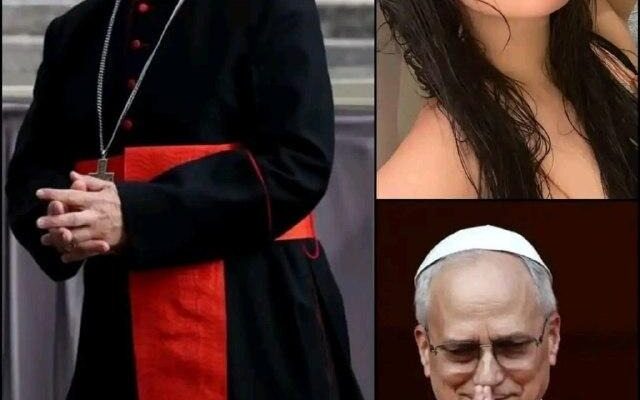LGBTQ Christian groups await Pope Leo XIV’s stance with cautious hope
LGBTQ Christian groups are cautiously hopeful about Pope Leo XIV, whom they welcomed with relief—despite his statements on sexual diversity made 15 years ago. This is a topic that, according to Mar Griera, a sociologist and religion expert, “doesn’t seem likely to be a priority on his agenda.”
Leo XIV’s election halts the ultra-conservative push in the Catholic Church
The newly elected Pope Leo XIV is seen as “anti-Trump” and was one of the favored candidates among more progressive cardinals. At the same time, he’s viewed as a safe and balanced choice for those who wanted to continue Pope Francis’s legacy and those who pushed for a return to traditional Catholic conservatism.
It remains to be seen how this will shape his position toward LGBTQ communities following Francis’s relatively progressive moves—though he still left many structural reforms unfinished. For now, Leo XIV’s past public statements give some clues, at least from the time they were made.
In 2012, Robert Francis Prevost lamented in a speech to bishops that Western media and pop culture were “promoting sympathy for beliefs and practices contrary to the Gospel,” including “the homosexual lifestyle” and same-sex families. He also referred to gender ideology as “confusing,” claiming it seeks to create “genders that do not exist.”
Pope Prevost and the “homosexual lifestyle”: “Let’s hope he doesn’t close the windows already opened”
Still, LGBTQ Catholic communities welcomed his appointment with some relief. Although Filipino Cardinal Luis Antonio Tagle was seen as the more LGBTQ-friendly choice, Leo XIV is far removed from the ultra-conservative, anti-LGBTQ alliances gaining ground globally.
However, organizations remain cautious and vigilant. “Francis opened windows for the LGBTQ community. Let’s hope Leo XIV doesn’t close them—and maybe even starts looking for the doors,” said Raúl Peña, spokesperson for Crismhom, a Madrid-based LGBTQ Christian community.
An ambiguous position
For now, Peña’s impression is not negative. He acknowledges the differences between Pope Francis’s and Prevost’s public statements but notes that the latter’s remarks are not enough to draw definitive conclusions. “Those are statements from 15 years ago. Even I don’t think the same way now as I did back then… Trying to predict this papacy based on that would be pure speculation.”
The Global Network of Rainbow Catholics, the world’s largest LGBTQ Catholic network, agrees that Pope Leo XIV’s words reflect a conservative view on sexual diversity. However, it emphasizes that “opinions can evolve.” They also highlight that while he’s expressed support for marginalized groups, his stance on issues like blessing same-sex couples remains ambiguous. In 2023, after Pope Francis allowed such blessings, Prevost stated they would “not work” in Africa.
Despite this, all interviewed voices call for patience. “Maybe the time he spent alongside Francis helped him change his views,” says Gema Segoviano, coordinator of the Faith and Spirituality group at Spain’s national LGBTQ federation. “In any case, he should understand that his words can either cause harm or bring relief. Francis had the chance to meet and listen to LGBTQ people, which is the best way to break stereotypes. I hope the new pope continues that path.”
The Global Network of Rainbow Catholics also urges the pontiff to keep encouraging “broad listening and deep reflection on topics that were once taboo,” expressing hope that “progress will continue toward building a more welcoming and inclusive Church.” Marianne Duddy-Burke, co-chair of the network, added: “We hope he continues learning from the stories of LGBTQ people, celebrates our gifts, and acknowledges that some teachings and practices have caused harm and need re-examination.”
“These will not be key issues”
LGBTQ Christian groups took note of Pope Leo XIV’s first words from the balcony of St. Peter’s Basilica. In a speech partly in Italian and Spanish, he advocated for “a Church that builds bridges, dialogue, and is willing to welcome all who are in need.” These references, in line with Pope Francis, give Raúl Peña a sense of hope: “Of course we’d have loved for him to come out and say he was going to change doctrine, but since that’s unlikely, we consider his words hopeful.”
Francis’s legacy on LGBTQ issues was notable for his symbolic gestures, which stood in contrast to the disdain shown by previous popes. He frequently met and spoke with LGBTQ individuals and made a few landmark declarations—ranging from the famous “Who am I to judge?” to criticisms of “effeminacy” in seminaries. The blessing of same-sex couples and allowing trans people to be baptized (under certain conditions) were his biggest steps forward. Still, he did not fundamentally alter Church doctrine on sexuality.
That, according to sociologist Mar Griera, will be Leo XIV’s main challenge. “Francis made symbolic gestures, but they didn’t translate into substantial reforms. Prevost now faces the difficulty that Francis already did the gestures—and doctrinal change is far harder, especially in the short term,” she says. “First, he’ll face strong resistance, and second, he’s already signaled that his priorities lie in social issues and peace.”
Griera emphasizes that Leo XIV’s public comments on LGBTQ topics are “few and dated,” and that he’s kept a low profile on this issue. Therefore, she concludes that gender and LGBTQ issues are unlikely to be central in his papacy. “We’ll have to see whether he’s willing to listen and reconsider his views, but it doesn’t look like these will be key priorities,” she states.
